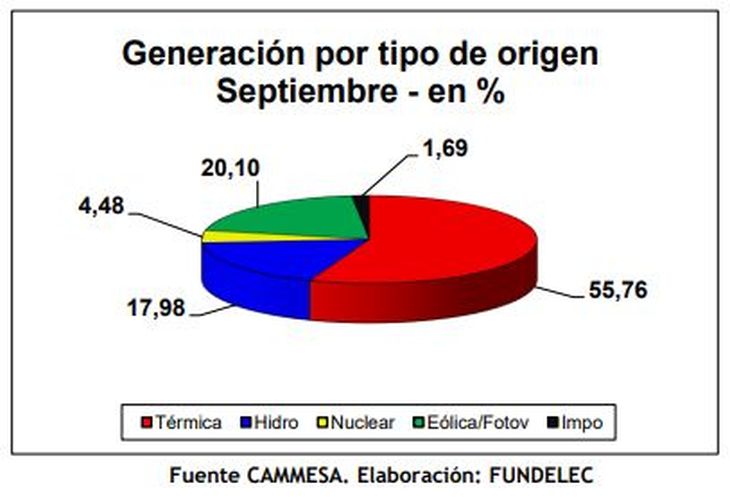He Electricity consumption fell in September for the first time in three months. In Buenos Aires and Patagonia the contractions far exceeded the national average.
According to data from the Foundation for Electrical Development (FUNDELEC), in the ninth month of the year, electricity demand contracted by 6.6% year-on-year, registering some 10,237.1 GWh. In the Metropolitan Area of Buenos Aires (AMBA), which concentrated almost a third of the total demand, a collapse of 12.6% was verified compared to September 2023.
Likewise, within the Province of Buenos Aires, which includes La Plata, the decrease was 10.2%, while The most pronounced drop was observed in the south of the country (-15.2%). Only in the Northwest (NOA) was there a better performance than a year ago (+1.1%).
Fundelec 1.JPG
Residential demand explained most of the decline
Residential demand, which explained 43% of the total, was the most affected (-11.1%). In parallel, commercial and industrial production decreased 5.1% and 1.1%, respectively.
It is worth remembering that in July and August consumption had shown improvements in year-on-year terms. Of the last 12 months, in 5 there were increases, while in the other 7 there were decreases; thus, the moving year presented a decline of 1.4%.
In absolute terms, without taking into account seasonality, September consumption was the second lowest in the last yearonly surpassing the data from last April.
On the other hand, FUNDELEC highlighted that “September 2024 was less cold compared to September 2023“since “the average temperature was 17.1 °C, while in the same month of the previous year it was 15 °C, and the historical one is 14.6 °C.”
Strong collapse in hydropower generation
Regarding electricity generation, 55.8% was explained by thermal generation (from fossil fuels). Hydraulics followed behind, with 18%, although in this case a year-on-year drop of almost 54% stood out.
Fundelec 2.JPG

For its part, non-conventional renewable energies (wind and solar) represented 20.1% of generation, leaving 4.5% for nuclear and 1.7% for imported electricity.
Source: Ambito




